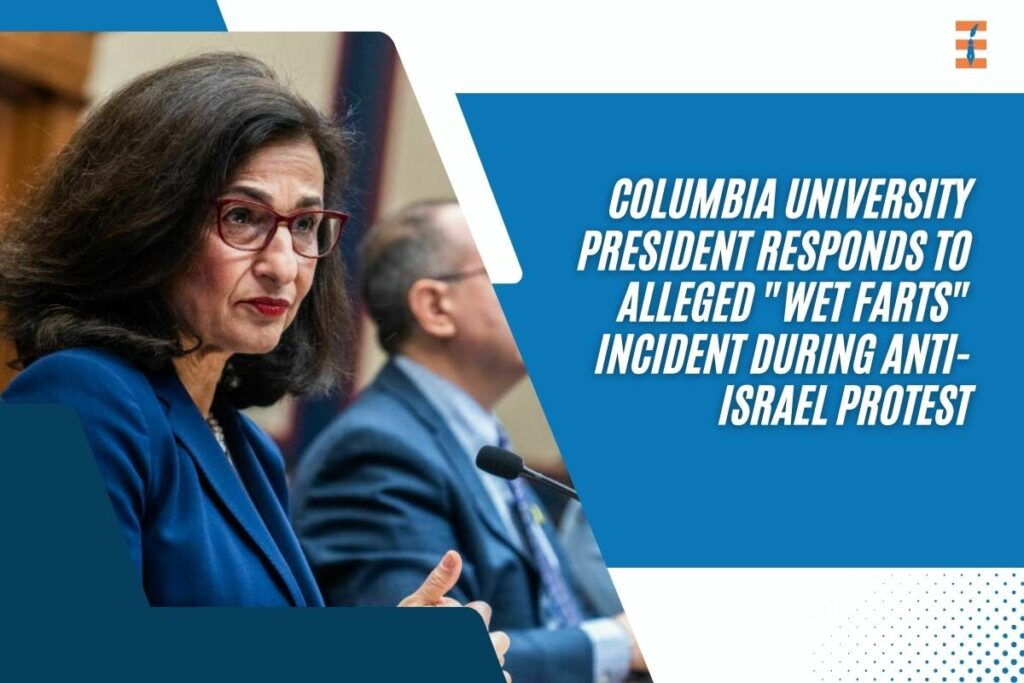Source- Wisconsin Public Radio
During a recent congressional hearing, Representative Ilhan Omar raised concerns about an alleged “chemical attack” at Columbia University targeting anti-Israel protesters. However, conflicting reports suggest that the incident involved a non-toxic flatulence spray rather than a harmful chemical substance.
Omar directed questions to Columbia University President, Dr. Nemat “Minouche” Shafik, regarding the January incident, which had garnered significant attention. The incident reportedly left protesters hospitalized, prompting inquiries into the university’s response and handling of the situation.
The congresswoman repeated claims, echoed by some media outlets, alleging that the incident was a “chemical attack by former Israeli soldiers.” However, court documents and a recent lawsuit filed by one of the students involved shed light on a different narrative. The substance in question was identified as novelty fart sprays named “Liquid A–” and “Wet Farts,” purchased online.
Omar pressed Shafik during the hearing, stating, “In January, there was an incident involving students that were protesting that were attacked with a toxic chemical substance, leaving many hospitalized. A lot of them did not receive support from the school administrators. Can you speak to what is happening with the investigation?”
Unraveling University Response to Protest with Fart Spray
Shafik responded by refuting the characterization of a “toxic chemical substance,” instead referring to it as an “odorous substance” pending police investigation. She mentioned reaching out to affected students, some of whom declined support.
Discrepancies emerged regarding the timeline of the university’s response, with Omar claiming a delayed outreach of more than four days, which Shafik disputed during the hearing.
The lawsuit filed against the university sheds further light on the incident, describing it as a harmless expression of speech using novelty fart sprays during a protest. The plaintiff’s intention was not directed specifically at anti-Israel protesters but as a general act within the protest environment.
The swift action taken by the university, including the suspension of the student involved and public statements, reflects the complexities surrounding freedom of expression, protest conduct, and institutional response protocols.
Jewish student suspended for using ‘fart sprays’ during anti-Israel protest sues Columbia University
Columbia Incident: Navigating Campus Activism Responsibly
Efforts to verify claims of hospitalizations and medical treatments related to the incident are ongoing, underscoring the importance of factual accuracy and responsible reporting in sensitive matters.
The Students for Justice in Palestine at Columbia also weighed in on the incident, emphasizing the need for nuanced understanding and respectful discourse within campus activism and demonstrations.
As investigations continue and legal proceedings unfold, the incident at Columbia University serves as a reminder of the complexities surrounding campus activism, freedom of expression, and the responsibilities of educational institutions in managing such situations. Clarifying facts, addressing concerns, and upholding principles of fairness and transparency remain paramount in navigating these challenging dynamics.
Also Read: House Education Committee Chair Threatens to Cut Funding from Colleges Over Antisemitism










